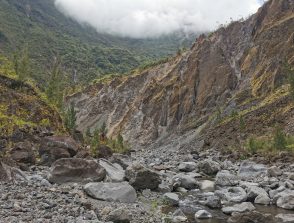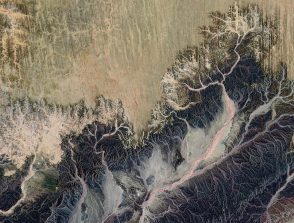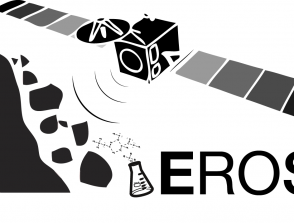Climatic, telluric and anthropic forcing on erosion, from the decadal to the millenial timescale: the study case of La Réunion Island
Using a photogrammetry technique on aerial photographs of La Réunion Island, the controls of climate and vegetation on erosion are studied.

Start: 01 October 2022
Supervisors :
Eric Gayer, Laurent Michon, Antoine Lucas
Related teams :
External Envelopes Geochemistry
Related themes :
Earth System Science
Status: In progress
Erosion is one of the important mechanisms that shape the landscapes of our planet and many factors such as climate, tectonic, vegetation,… are proposed as controls on erosion processes. The goal of this thesis is to study climatic forcing and to try and understand their influence and importance on erosion. More specifically, this thesis focuses on studying the influence of climate and vegetation on a short timescale (decadal) using the study case of La Réunion.
La Réunion is a French volcanic island located in the Indian Ocean. It constitutes an ideal natural laboratory to study the climate-erosion interaction due to its tropical climate characterised by a strong seasonal (cyclones) and geographic (windward VS leeward coast) contrast. Moreover, due to the demographic muta^on of the last 50 years and the reforestation of part of the island, La Réunion appears to be a place where the influence of vegetation cover on short-term erosion (and indirectly of anthropogenic impact) can be studied.
To study these forcing and their importance, this thesis relies on the use of op^cal imagery and more precisely of a photogrammetry technique on aerial photographs of La Réunion to design Digital Eleva^on Models to quantify the morphology changes of the island as well as orthoimages to connect the vegetation cover evolution to the morphology changes.







